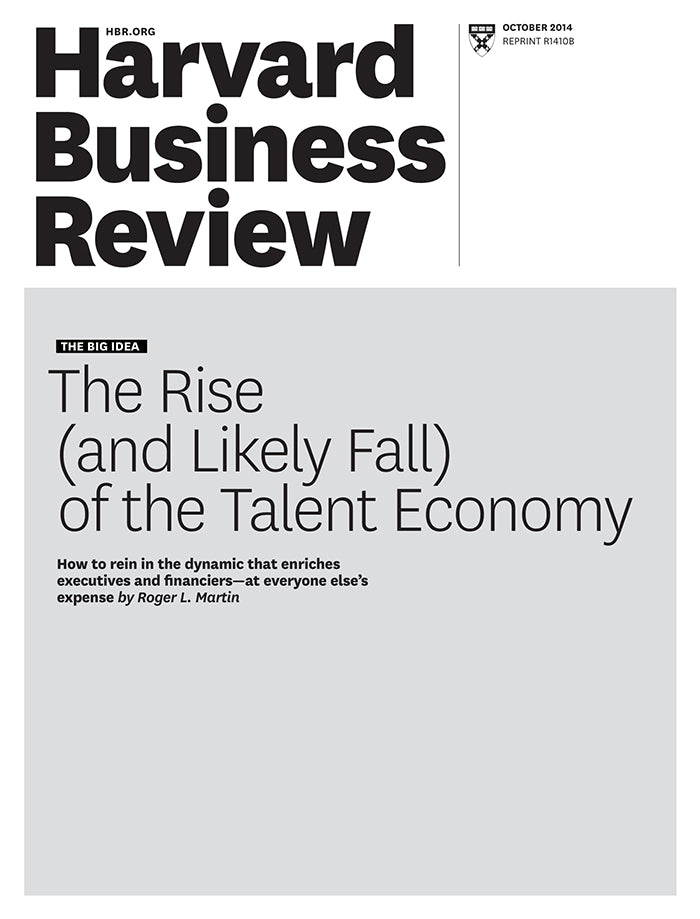The Rise (and Likely Fall) of the Talent Economy
受取状況を読み込めませんでした
Since 1960 the U.S. economy has moved from largely financing the exploitation of natural resources to making the most of talent. The rewards to executives and financiers have skyrocketed as a result. But over the past two decades or so, the author argues, it has become increasingly clear that much of this talent is trading value rather than creating it: The fastest-growing group on the Forbes 400 list is hedge fund managers. What's more, stock-based incentives, which were intended to align the interests of top executives with those of long-term shareholders, are actually encouraging CEOs to serve the interests of short-term traders. The losers in this game are employees engaged in routine work, whose rewards are shrinking or whose jobs are disappearing. This state of affairs has created a growing--and unsustainable--inequality of income. Martin suggests that three things must happen if we are to avoid radical and talent-hostile steps imposed through the ballot box: (1) Talent must exert some self-discipline and lower its expectations. (2) Investors--primarily pension and sovereign wealth funds--must prioritize value creation. That means not voting in support of stock-based compensation and no longer supplying hedge funds with large amounts of capital or lending them stock. (3) Government should regulate the relationship between hedge funds and pension funds (if the latter don't do so voluntarily), tax "carried interest" as ordinary income, tax trades, and revisit the overall tax structure.
【書誌情報】
ページ数:9ページ
サイズ:A4
商品番号:HBSP-R1410B
発行日:2014/10/1
登録日:2014/9/19


